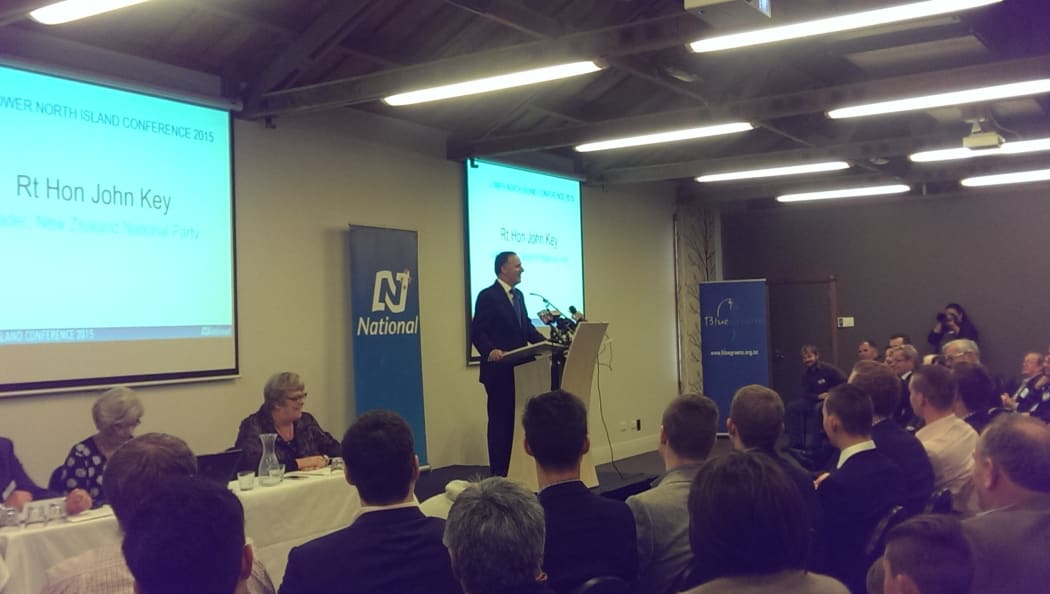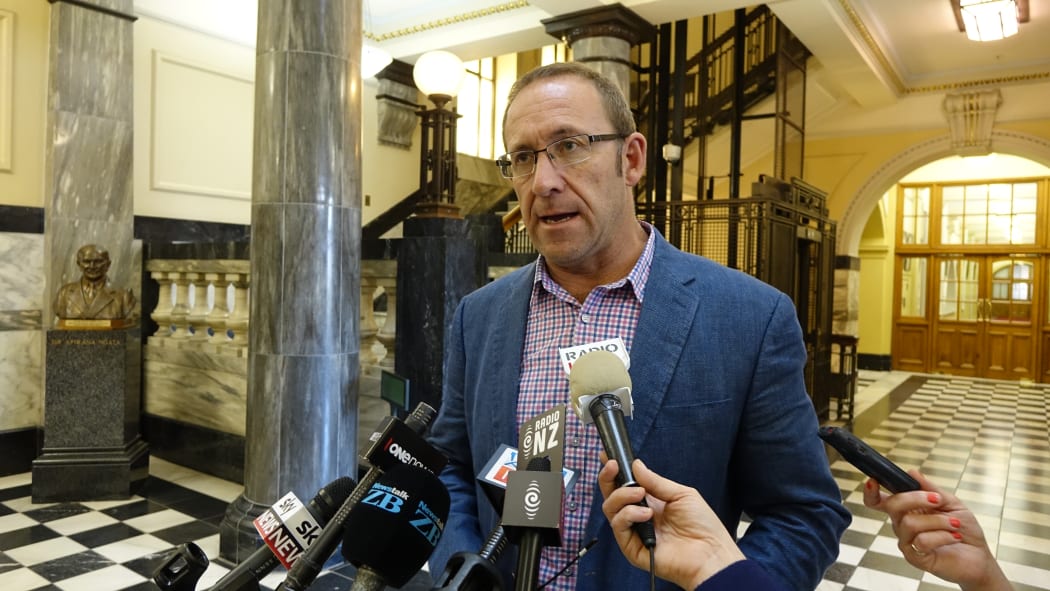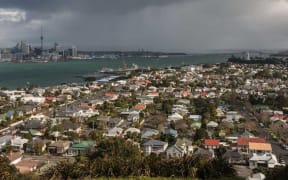Prime Minister John Key has confirmed the Government decided late in the Budget process to tighten the tax on capital gains made from property investment.
Just four weeks ago Mr Key told Radio New Zealand there were no plans for the Budget to tax capital gains made on residential properties.

Prime Minister John Key announced the policy at a conference in Silverstream. Photo: RNZ / Jane Patterson
Yesterday he announced capital gains on residential properties bought and sold within two years would be taxed from 1 October. This will not apply to the family home, death estates or properties sold as part of a relationship property settlement.
Mr Key said work on the tax had only been done in the past four weeks.
Labour Party leader Andrew Little said the Government's sudden change of heart had led to a scrambled and last minute housing measure.
Mr Key said he did not accept there was a housing crisis in Auckland, though prices were rising too quickly.
"If this carried on forever, then that would be a big problem because eventually you would have a major issue," Mr Key said.
"A more gradual rise would be better," he told Morning Report. "We don't live in a perfect world ... fixing supply is by far the most important thing to do.
"But I don't think it's a crisis in housing at the moment."
Mr Key has also consistently ruled out the need to clamp down on foreign buyers but now admits they might be a problem.
"We know there are people that come into New Zealand - IRD's advice to us is that number is increasing of people who are deliberately rorting the system.
"Now I don't know know how big that is today - no-one's quite sure - but IRD says there's more activity happening there, and my main point is why should a non-resident be in a better position than a resident."
Rules strengthened
Mr Key has said the tax measure did not constitute a capital gains tax, but rather strengthened existing rules. The Government expected to make about $420 million more in revenue as a result.
"A capital gains tax means that when you buy a property, it doesn't matter when you sell it - you pay the capital gains tax.
"The reason I'm opposed to them is you can drive a bus through them, because people structure themselves in a way.
"This is just simply saying, the current law is you have to pay on intent. We're taking away the presumption that you can argue within a two year period, buying or selling a property, other than your family home, that actually what you're really doing was looking to make a gain - it's quite a different sort of thing."

Andrew Little Photo: RNZ / Jane Patterson
The Labour Party leader Andrew Little said while the changes would not make a huge amount of difference, they were an admission that there was a housing crisis.
"The stunning thing about this is that for months, if not more than a year, the Government has refused to accept that there is a housing problem or a housing crisis, especially in Auckland.
"The Government has now grudgingly, finally, accepted there's a problem, so now they've made the move."
New Zealand First leader Winston Peters said this would not ease the pressure on the housing market from foreign buyers.
"Much of offshore buying is not designed to be short term: they're in for the long haul in price rises - how it helps New Zealand buyers is not at all clear."
Other new measures include the requirement for all non-resident buyers and sellers to have an Inland Revenue Department number and New Zealand bank account.
Mr Key said that was aimed at gathering more comprehensive information, and preventing money laundering.
"Ensuring that non-residents, essentially foreigners, have a bank account in New Zealand means it's much harder for them to launder money in New Zealand.
"We live in a global capital market now, where money can be moved around, and it's just incumbent on New Zealand to make sure we do our best to make sure investment that comes into New Zealand is clean and legitimate."
Mr Peters said a full foreign owners register was still needed.
"The Government, which has been in denial about the massive build up of offshore buying, now partially admits it - but it does not want a register of ownership of houses and land: that's going to be information confined to the IRD."
Mr Little said the new requirements fell well short of a proper register such as exists in Australia. That was is a proper register of foreign buyers so that real estate agents and those competing with foreign buyers knew there was a foreign buyer in the mix, he said.
Mr Key said setting up a register of foreign buyers would not have achieved anything.
"Collecting data of itself doesn't really do much for you ... unless you actually do something about it." he said.
Legislation introducing the changes is due to be introduced in July and will go through a full select committee process.





